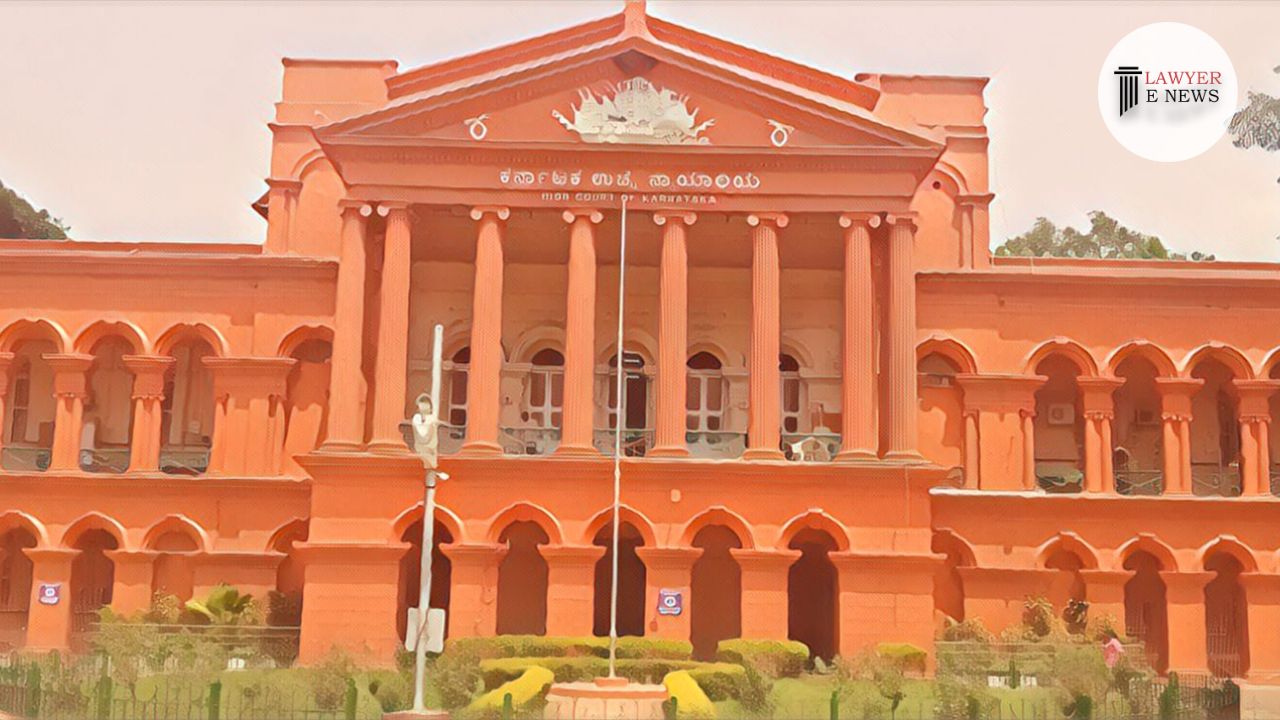-
by Admin
15 February 2026 5:35 AM



In a significant ruling, the Karnataka High Court, presided by Hon’ble Mr. Justice H.P. Sandesh, has partially allowed appeals in two related land dispute cases, underscoring that revenue records alone cannot confer title. The judgment, delivered on April 25, 2024, addresses the critical legal issue of relying solely on revenue records for title declarations, affirming that clear title deeds are necessary for ownership claims.
The court scrutinized the reliance on revenue records by the trial court and the first appellate court, which had granted ownership declarations based solely on such records. Justice Sandesh emphasized, “Revenue records are not documents of title. The trial court erred in decreeing the suit by placing higher probative value on revenue entries.” The court further remarked that mere entries in revenue records, such as RTC extracts, cannot establish ownership in the absence of clear title deeds.
Addressing the admissions made by the defendants’ witnesses, the court observed that while these admissions indicated that the suit property belonged to the Virakta Mutt, they did not constitute conclusive proof of title. Justice Sandesh noted, “Admissions during cross-examination, while relevant, do not in themselves confer title. The court must insist on clear proof of title deeds to support declarations of ownership.”
The judgment extensively discussed the principles of land ownership and the burden of proof. Justice Sandesh reiterated, “In suits for declaration, the plaintiff must provide clear and convincing evidence of title. Revenue entries alone, without supporting title deeds, are insufficient to grant such declarations.” The court referred to Supreme Court precedents, including P. Kishore Kumar v. Vittal K. Patkar (2023) and Union of India v. Vasavi Co-operative Housing Society (2014), which establish that revenue records do not equate to ownership.
Justice Sandesh remarked, “Revenue records, while indicative of possession, do not substitute for the legal proof of title. The burden rests on the plaintiff to provide substantive title deeds to establish ownership conclusively.”
The Karnataka High Court’s decision underscores the judiciary’s commitment to rigorous standards of proof in land disputes. By setting aside the declaration of ownership and maintaining the injunction against interference, the court has reinforced the legal principle that revenue records alone cannot establish title. This ruling is expected to impact future land dispute cases, ensuring that clear documentary evidence is paramount in claims of ownership.
Date of Decision: April 25, 2024
PATEL VEERAPPAIAH VS SRIMAN MAHARAJA .Ors
